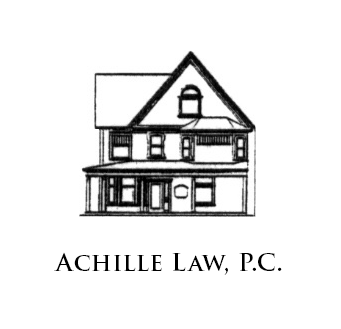Should I Transfer My Home to My Children Before I Die in Pennsylvania?
Estate planning is a critical aspect of everyone's life, ensuring that their assets are distributed according to their wishes after they pass away. For many individuals, their most significant asset is their home. Pennsylvania has several ways to transfer property, including by will, trust, or inter vivos transfer. An inter vivos transfer refers to a property transfer during one's lifetime. Below we will explore the pros and cons of such a decision in Pennsylvania.
Pros of Transferring Your Home Before Passing Away:
Probate Avoidance: By transferring your home to your children before you pass away, you effectively bypass the probate process. Probate can be time-consuming and costly, often causing delays in the distribution of assets. Transferring your home can ensure a smoother transition of ownership without court involvement.
Tax Planning: Pennsylvania does not have a real estate transfer tax between parents and children. There is an inheritance tax of 4.5% on transfers under a will. It is crucial to consult with a tax professional to understand the potential tax implications in your specific situation fully. For example, it could impact your federal estate tax by using some of your credit if you have a very large estate.
Medicaid Planning: Transferring your home may have implications for Medicaid eligibility if you require long-term care in the future. By transferring your home, you may be able to protect it from Medicaid's asset calculation, potentially preserving it for your children where the transfer was five or more years before you need assistance with your long-term care expenses.
Ensuring Your Legacy: Transferring your home to your children can be a way to ensure that the property stays within the family. It allows you to pass on a meaningful legacy and provide a stable living environment for your loved ones.
Cons of Transferring Your Home Before Passing Away:
Loss of Control: Once you transfer your home to your children, you surrender control over the property. Unforeseen circumstances with your children may arise, such as financial issues or divorce, which could jeopardize the home's ownership and use. You also lose the ability to borrow against or sell the home.
Capital Gains Tax: When you gift your home during your lifetime, your children have your cost basis, potentially leading to higher capital gains taxes if they decide to sell the property in the future. For example, if you have owned your home for a long time, substantial income on the sale would be taxed. On the other hand, if they inherit the property through your will, they receive a stepped-up cost basis at the current market value. They would then only pay tax on the home's sale if they sell it for more than the market value at the time of inheritance.
Medicaid Look-Back Period: Transferring your home within a certain period before applying for Medicaid benefits may lead to penalties or delays in eligibility. Medicaid has a five-year look-back period in Pennsylvania, during which transfers may be scrutinized.
Potential Family Disputes: Transferring your home to children before passing away can lead to disputes among family members. Siblings may disagree on how the property should be managed, used, expenses divided, or sold, causing emotional strain and even legal conflicts. These problems are avoided if the executor sells the property and divides the proceeds. The children could have the right to bid on the house.
Next Steps
Deciding whether to transfer your home to your children before passing away involves complex legal and financial considerations. While it offers benefits like probate avoidance and tax planning, it also carries risks like loss of control and potential tax consequences.
Consulting an attorney is helpful in making an informed decision that aligns with your goals and protects your assets.
If you have questions about a legal matter, turn to Achille Law, P.C., located at 379 Main Street, Brookville, PA 15825. Our lawyers provide legal guidance and representation for most legal matters. Visit our website, palaw.org, to learn more about our practice areas, or call (814) 849-6701 to schedule a free consultation.
Legal Disclaimer: This article and inquiries through email, website or phone do not create an attorney-client relationship between you and our firm. Each case is evaluated prior to acceptance and representation agreements are set forth in writing.
